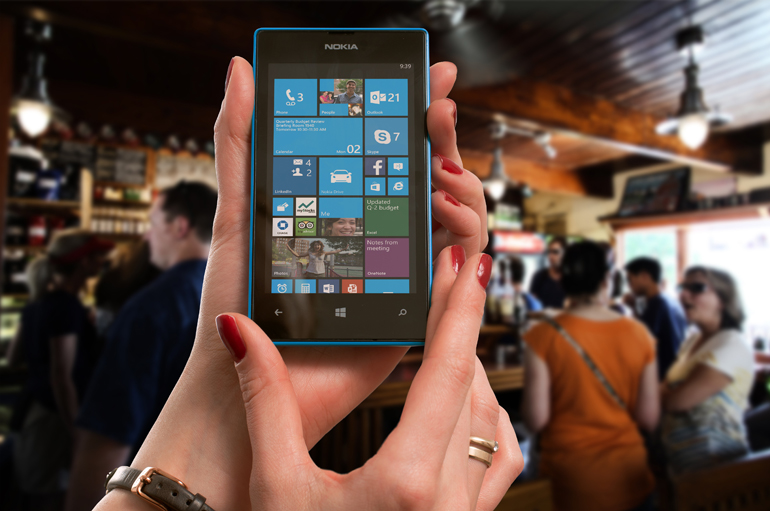 Since the scandals of eavesdropping of government and business leaders are spreading, the fear of data theft is growing and the interest in finding an optimal protection to make mobile phones safer is more in the limelight.
Since the scandals of eavesdropping of government and business leaders are spreading, the fear of data theft is growing and the interest in finding an optimal protection to make mobile phones safer is more in the limelight.
Although there will probably never be a 100% security, you can proactively do a lot to prevent eavesdropping. In fact, you have to since the mobile phone isn’t used nowadays only to make calls. Both adults and children use the technology to take photos and make videos, send SMS, store personal data in the address book as well as account numbers, PIN- or even TAN numbers, meeting schedules, and much more. Once the mobile phone is cracked and the data on the PC of the hacker, you can imagine the trouble and hassle it creates.
Do not let it get that far and consider the following tips:
Tip 1: Choose the smartphone that meets your requirements
Each manufacturer has its advantages and disadvantages, so get informed before you buy one. The most popular smartphones are Apple's iPhone, Google's Android and Microsoft's Windows Phone 8. According to test results, the iPhones and the Windows Phone 8 are currently the most secure systems, but that may change again anytime.
Tip 2: Activate access code
After your purchase, you should definitely use the lock function the mobile phone offers and generally activate the PIN code and card lock to protect it from strangers. Even the screen lock / key lock should be on, so that the phone in your pocket can’t activate itself and connect to the Internet or call someone unintentionally.
Tip 3: Turn off Bluetooth
Hackers love Bluetooth connections in particular as a gateway, therefore turn radio services generally off when they are not needed. You need WiFi, GPS and Bluetooth at best for Google Maps and data synchronization with other mobile phones. So, if you do not use these functions, just switch them off. It saves you a lot of power and makes sure that no stranger gains access.
Tip 4: Download updates regularly
Just as for the computer, updates are very important. Many mobile phones, however, are still equipped with the same software that was acquired with the purchase, and hackers can use the vulnerabilities of outdated software to gain access.
Tip 5: Make use of coding
Newer phones allow to send data encrypted and you should make use of it. Always encrypt personal data, registration data, emails and websites. For instance, emails can be rendered unreadable with the help of apps like the Android Privacy Guard before sending. While the data is transferred, no one can listen in.
Tip 6: Take notice of Hotspots
Especially public Internet Hotspots offer little security. Unfortunately, you can rarely check if a hotspot is really what it claims to be. Hackers can install fake access points, and when you access them with your mobile phone, crooks can listen in or tap personal access data.
Tip 7: Never click on SMS / MMS links of strangers
If you want to stay safe, never click on links in SMS, emails or other messages That way you are avoiding the risk of getting attacked and infected by malware that allows hackers to use and retrieve all functions of your phone - anytime. Open MMS only if you are sure that the picture message is from the person that has supposedly sent it. In a pinch, make a quick call to reassure.
Tip 8: Install only trustworthy Apps
Each app will use various functions of your smartphone, such as the Internet connection or the data of your address book. When installing an app, the user must always give consent first. Hence, install only when you are sure that the app comes from trusted sources, because behind some apps are hidden viruses. When in doubt, refrain from the installation and look for another app or install apps that can locate viruses on your smartphone first.
Tip 9: Pay attention to weird phone numbers
Before you call back a phone number, you should consider whether it is a fee-based added-value number. Keep in mind that it is no problem to have a number of call diversions, which may cause additional costs. If possible, you should apply for an itemized bill for your monthly telephone statement, so that you can check the invoice properly to find premium rate numbers immediately. If you have children, you should generally consider blocking chargeable value-added services and mobile payments for the child’s mobile phone to avoid surprises at the end of the month.
Tip 10: Consider theft prevention
If your smartphone gets stolen, just activate the erase code using another phone. If you have an older model, you can upgrade it with an app and make sure to always be able to erase all data in an emergency from another phone, so that they are inaccessible to the thief.
And always remember to make regular backups, so that in case the phone gets lost or stolen, you can easily restore the data.
By Daniela La Marca


